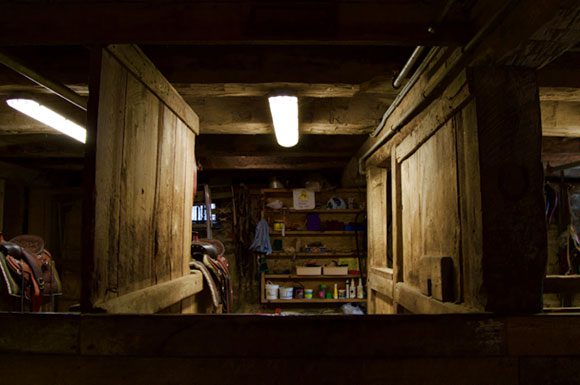The shadows of skyscrapers that tower side-by-side cloak the streets, leaving many in darkness as the sun hits its highest point in the big city. The road is closed – again. Sounds of a jackhammer and construction workers shouting seem to be routine to the crowd crossing the busy street. Car horns are honked, signalling the beginning of rush hour. People in suits, school uniforms and casual clothes all seem to be on a mission. There are things to do and places to go. Rarely can they be done at the same time.
Life feels rushed.
But in the heart of the city lies an oasis, a flashback to a much simpler time. A place where cows, chickens and even horses are found. To some, a country lifestyle has no place in Canada’s largest city, but for Toronto, Riverdale Farm is an exception.
“I think it’s a nice little place in the city from which you can actually get away from the city,” said Jean-Paul Guay, a Toronto resident who lives near the farm.

Riverdale Farm, located in the heart of Toronto’s downtown community of Cabbagetown, features a variety of farm animals and is open all year round from 9 a.m. to 5 p.m.
Located on Winchester Street within the downtown community of Cabbagetown, Riverdale Farm is a peaceful getaway that features scenic pathways, forest and is home to a variety of farm animals. It is bordered by Sumach Street and Gerrard Street East, and is isolated within a residential area.
Seven and a half acres large, the farm is the only one within Toronto’s downtown. It showcases livestock and horticulture and is recognized as a working demonstration farm.
It does not produce food for the general public, but it does offer extensive learning experiences for visitors.
Built in 1858, the farm is city-owned and was officially unveiled as, Riverdale Farm, on Sept. 9, 1978, after more than 50 years as Toronto’s first zoo. Through the years, it has transformed from a visual interpretation of farm life into an educational facility for all ages.
Riverdale Farm offers a humbling perspective on 19th century rural Ontario. Adults and children alike are able to experience real farm sounds, smells and practices. Torontonians get first-hand experience in the importance of farms and the role they play in the production of food – an experience that would only otherwise be accessible through the Internet, books or a trip out of town.
“Despite being located in the heart of the city, Riverdale Farm feels like a world apart,” said Allison Sandmeyer-Graves, chair of the Riverdale Farm stewardship group.
“It offers urban residents a meeting place where they can reconnect with the agricultural spaces that sustain our food system through the chance to experience a working farm first-hand. Here they can learn about the important role farms play in our lives and build a community through shared experiences,” she added.
The farm is also a testament to Toronto’s diversity.
“Toronto celebrates the diversity of its people, but we also have such a diversity of places, spaces, experiences and attractions that allow everyone to come together. The farm is absolutely one of those places,” said Councillor Pam McConnell of Ward 28, which encompasses Riverdale Farm.
McConnell also noted the outpouring support that the farm had received when it was in risk of closure during council’s last term. She said that the citywide support was truly eye-opening.
Through Riverdale farm, Toronto is able to demonstrate historical sustainability and environmental awareness. People are taught the fundamentals of the farm-to-table process emphasizing the careful structure and nurturing of natural ecosystems.
“It’s pretty unique,” said Edmond Schnitker, a father on his second visit to Riverdale Farm with his family. His two children were eager to meet the farm animals and learn about farm life.
“Our main visits are because of the little ones because they keep asking for animals and it happens to be close to home,” Schnitker added.
Aside from its historical value and its uniqueness to the city of Toronto, the farm offers a variety of activities that are interactive and educational for younger generations who would like to learn about agricultural practices.
“One of our biggest missions is to try and educate people who come to the farm about where their food comes from and how valuable rural farms are, noting the important role they play in all of our lives,” said Riverdale Farm supervisor Carol Guy.
Riverdale Farm is open daily from 9 a.m. to 5 p.m. and admission is free.

